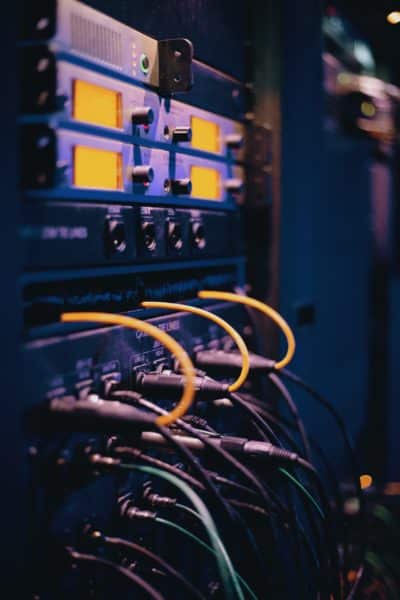Business servers enable reliable, mass computing activities from simple remote access for PCs and everyday file sharing to more complex operations, such as running a printer server, as well as many other requirements your staff needs to complete their tasks all at once.
And they can either be located on-site, or they can be off-site, such as a third-party cloud-based server. However, when choosing a business server, there are five things to look for to ensure you select the best one for your needs.
IMAGE: PEXELS
Speed
Server speed is important for fast file transfers and site loading, which is needed to ensure a low bounce rate. When it comes to speed, some things to look for in your server include the central processing unit (CPU), random access memory (RAM), and storage I/O specs, which, together, determine your network’s performance.
If your server is cloud-based, you should be able to log in to check the server’s specifications; however, be warned that even with good bandwidth, your network may still lose speed during peak traffic times due to its use by many users.
Customer Service
Many businesses prefer virtual servers for their simplicity; however, it is still important to ensure your chosen cloud-based company has great customer service with the knowledge needed to quickly troubleshoot and issues should an outage occur to help prevent downtime and financial losses. Even if you choose a dedicated server, customer service is still important when experiencing hardware malfunctions. You should also ask if they fast ship replacement parts for less downtime.
SSD Sizes
An SSD drive, which is short for solid-state-drive, functions similar to a flash drive, except it is larger and mounted inside the server. The way how SSD works is pretty much a solid-state drive with fixed parts, as opposed to moving parts like other drives, which offers faster read/write times and increased server speed by up to 90% or more.
SSD’s vary in size; however, according to Joe Oesterling, Chief Technology Officer at Liquid Web, “you want to choose at least a 6-bay storage SSD drive for the greatest speed, storage, and memory option.”
Remote Data Backup Capability
Remote data backup enables you to save important information for disaster recovery. Therefore, you also want to also look for a server with built-in software to backup data to another drive or server. Some cloud-based servers also offer their own backup service, so it is easier to use their service.
Security
Chances are all of your company’s data will be stored on the server, so you want to consider its cyber protection capabilities to help ensure your information is shielded from attacks. Even if you choose a cloud-based server company, you still need to ask questions regarding the level of security they provide. The right business server will help ensure more reliable group computing, which will help make your employees’ jobs easier and also help you to stand out to clients as a superior company.
If you are interested in even more technology-related articles and information from us here at Bit Rebels, then we have a lot to choose from.


COMMENTS